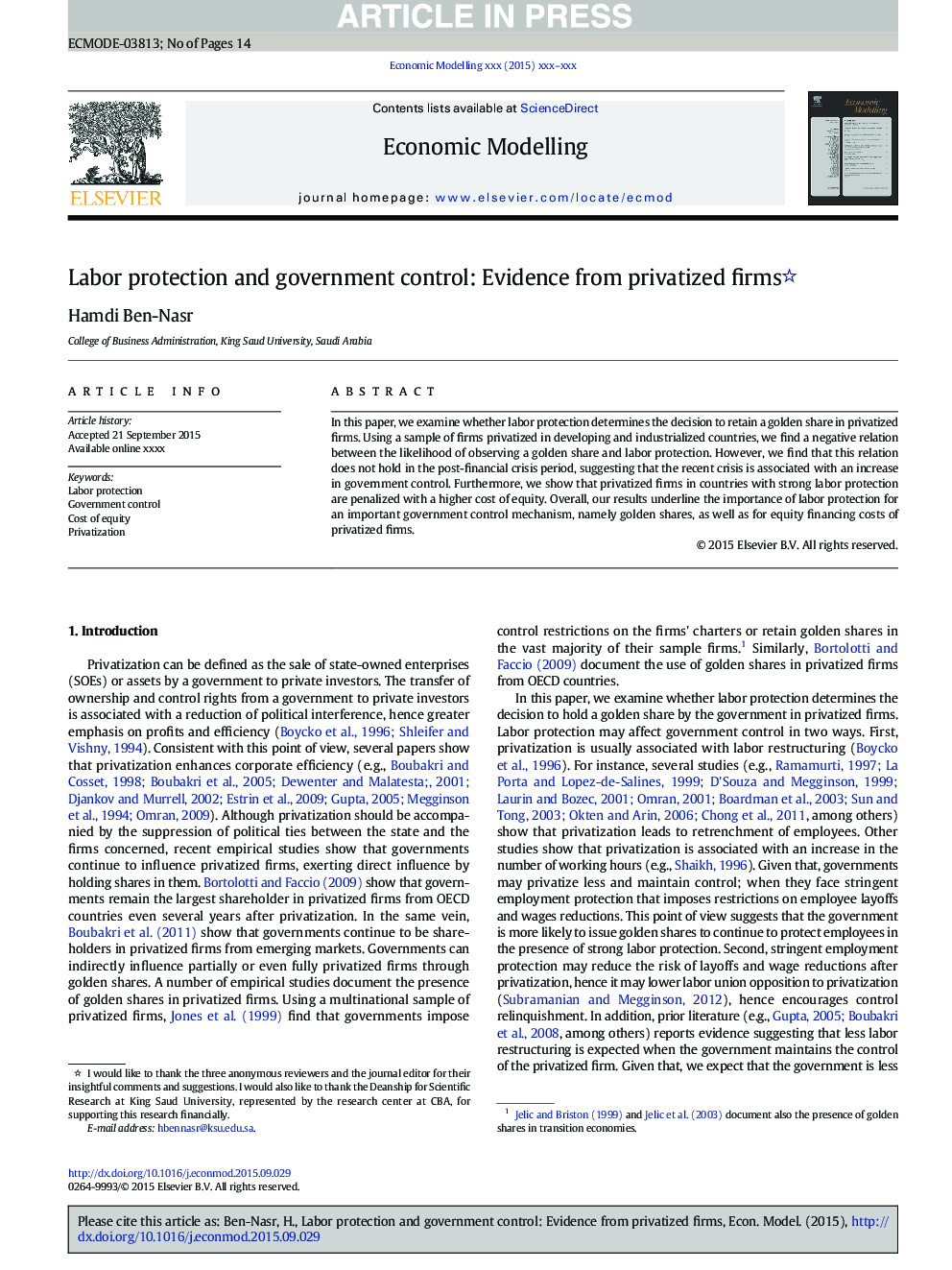| Article ID | Journal | Published Year | Pages | File Type |
|---|---|---|---|---|
| 5053650 | Economic Modelling | 2016 | 14 Pages |
Abstract
In this paper, we examine whether labor protection determines the decision to retain a golden share in privatized firms. Using a sample of firms privatized in developing and industrialized countries, we find a negative relation between the likelihood of observing a golden share and labor protection. However, we find that this relation does not hold in the post-financial crisis period, suggesting that the recent crisis is associated with an increase in government control. Furthermore, we show that privatized firms in countries with strong labor protection are penalized with a higher cost of equity. Overall, our results underline the importance of labor protection for an important government control mechanism, namely golden shares, as well as for equity financing costs of privatized firms.
Related Topics
Social Sciences and Humanities
Economics, Econometrics and Finance
Economics and Econometrics
Authors
Hamdi Ben-Nasr,
